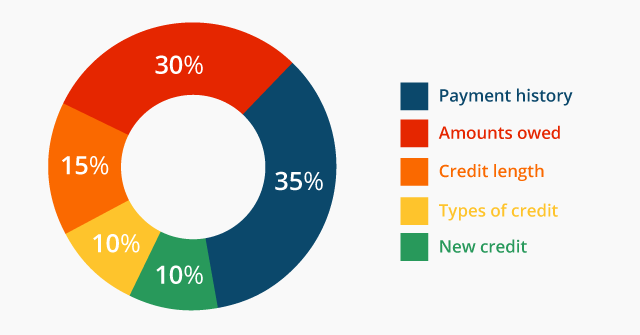If you've taken countless loans before, you probably know a thing or two about credit checks. These inquiries about your credit score and report can significantly affect the probability of you successfully getting a loan. Good credit scores mean your loan has a high chance of approval.
However, these credit checks are not just simple credit checks. Depending on the kind of inquiry, your credit score might take a hit and cause you to lose some points. But why does this happen? What type of credit check could take a toll on your credit score like that?
What are Credit Checks?
Credit checks are done by banks and lenders to assess you whenever you're about to take a loan. It contains information about your FICO credit score and your credit history, enough for institutions to evaluate you and your creditworthiness.
By doing a credit check, financial institutions would be able to calculate the risk they are taking for lending you money and determine whether you can handle the payment process.
Three credit reference agencies gather these pieces of information: TransUnion, Equifax, and Experian. They are the ones responsible for compiling reports about your finances and credits. The reports come from the companies that lent you money. After that, Fair Isaac Corp. will use these reports to calculate your FICO credit score, which is an essential factor whenever you're applying for a loan.
The result on your credit check also helps banks and lenders determine the terms and conditions that surround your loan. If you have an excellent credit score and report, lenders will likely give you a lower interest whenever you apply for a loan. However, a bad credit score might limit how low your interest can go, or worse, make lenders turn you away.
Two Kinds of Credit Checks
Here are the two types of credit checks:
Hard Credit Check
When a company decides that your credit report needs a thorough search, then that's how you know they're doing a hard credit check on you.
Hard credit checks will leave a record on your report, so other institutions searching will see that you've applied for credit before. This kind of search usually happens when you apply for a loan, credit card, or mortgage that needs your authorization.
A single record of a hard credit check would unlikely affect your score that much. There are instances that it could lower your credit score for a few points. However, too many hard credit checks in just a small amount of time can affect your score temporarily. This means that your chances of getting loans approved in the future will be lower.
The lenders aren't the only ones who can do a hard check on your credit report. Mobile phone companies and utility providers might also subject your credit reports to a hard credit check. However, they can't search without your consent.
To avoid the effect of having your credit report undergo a full search, you'll have to minimize your credit applications. Apply only for credits that wouldn't turn you down. However, if you can't avoid a credit application, space out your applications to limit the damage to your score. Consider only applying for a credit every three months and no more. Some companies might have a different criterion, so it's best if you just avoid getting loans that are too close to each other.
If you think there's something wrong, try disputing your hard credit checks. Since these inquiries require your permission, raise the issue with the credit bureau. Having a questionable record of a hard credit check can be a sign of identity theft. Make time to look into your credit report to see if something is off with it.
Soft Credit Check
A soft credit check, on the other hand, is a quick look over certain information on your credit report. Without having to resort to a full examination of your credit history, lenders would be able to decide whether your application will be approved or not.
Soft credit checks wouldn't harm your credit scores, unlike how hard credit check does. Since it doesn't affect your score, your credit applications in the future wouldn't have to suffer. The number of soft credit checks on your report doesn't matter, and you're the only one who will be able to see these reports. You can even use a soft credit check to see whether you are qualified for different kinds of credit without going through the trouble of applying.
It is also important to know that other people and companies can do a soft credit check on your report without your permission. Lenders might inquire about your credit report from time to time to make sure that you can still return the money they've lent you.
Takeaway
Credit checks are a way for lenders to assess and analyze whether they can trust you with their money. Not only does it contain your credit score, but it also has records of your past credits that would indicate your creditworthiness. Just make sure that you thoroughly know your own credit report before applying for a loan, especially loans that require a hard credit check. This way, you can protect your credit score and minimize the damage done by a thorough search of your credit history.




